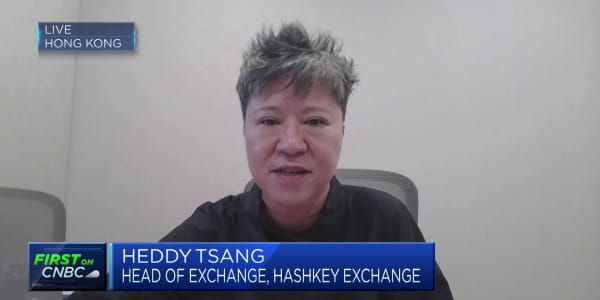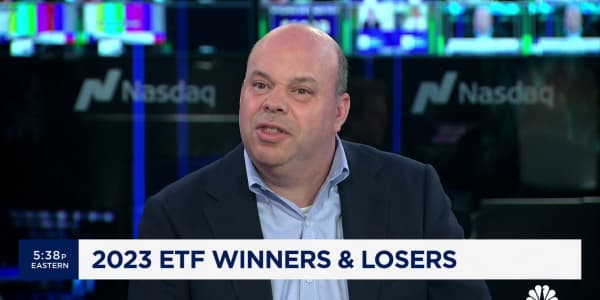Two JPMorgan ETFs, the JPMorgan BetaBuilders Japan ETF (BBJP) and the JPMorgan BetaBuilders Europe ETF (BBEU), have seen massive inflows of investor cash since last Wednesday. Assets in BBJP have leapt 6,936 percent in one week, while assets in BBEU jumped 1,863 percent.
This represents by far the most significant amount of new money into both funds since they each launched earlier this summer, on June 15. Until last Wednesday, BBJP had $9.4 million in assets under management, while BBEU had $10.0 million.
As of Friday, July 13, BBJP took in $198 million in flows, followed by another $456 million on Monday of this week. BBEU, meanwhile, saw $73 million of new money enter it on Tuesday, then another $114 million in new assets on Monday.
As of Wednesday, July 18, BBJP had $665 million in assets, while BBEU had $197 million.
Undercutting the competition
Both funds belong to JPMorgan's BetaBuilders brand, a set of three ultra-cheap, market-cap weighted ETFs that, while not the cheapest in their class, still undercut the better-established competition by several basis points.
The third BetaBuilder ETF, the $53 million JPMorgan BetaBuilders MSCI U.S. REIT ETF (BBRE), saw no new inflows over the same period.
BBJP costs 0.19 percent, fully 30 basis points less than the $17.9 billion iShares MSCI Japan ETF (EWJ), the market's largest Japan fund. Only the Franklin FTSE Japan ETF (FLJP) and the Xtrackers Japan JPX-Nikkei 400 Equity ETF (JPN) are cheaper.
BBEU, which costs 0.09 percent, carries the cheapest price tag for a European equities ETF and undercuts the segment's heavyweight, the $16.8 billion Vanguard FTSE Europe ETF (VGK), by 0.01% in expense ratio. BBEU costs the same as the Franklin FTSE Europe ETF (FLEE) and the Xtrackers Eurozone Equity ETF (EURZ).
Similar portfolios, only cheaper
Low costs are likely how JPMorgan hopes to attract assets into both BBJP and BBEU, which, as vanilla, market-cap weighted equity ETFs, look very similar to existing products.
BBJP's portfolio looks almost identical to the bigger, older EWJ, even though BBJP pulls from stocks listed on either the Tokyo and Nagoya Stock Exchanges, whereas EWJ only selects Tokyo-listed stocks.
BBEU also looks very similar to the iShares Europe ETF (IEV), which holds 350 of the largest European equities; BBEU holds the top 85% of the market by capitalization.
More from ETF.com:
After waiting years for China A shares, it all went horribly wrong
Biggest threats to emerging markets ETFs
A 'black swan' ETF is in the works
Other JPMorgan ETFs with relatively cheap price tags for their segments include its line-up of five single-factor U.S. equity funds, which cost 0.12% apiece and are among the cheapest single-factor ETFs available.
JPMorgan first entered the ETF business in 2009, when it debuted the still-popular J.P. Morgan Alerian MLP Index ETN (AMJ), which has $3.1 billion in assets under management.
However, JPMorgan's ETF efforts picked up in earnest around 2016, when they launched six new ETFs, followed by 10 more funds in 2017. So far in 2018, the issuer has launched five new funds, including the three BetaBuilders ETFs.
Yet even with the influx of cash into BBJP and BBEU, assets in J.P. Morgan's funds remain fairly small. Only $9.3 billion is invested in their 27 products, 34 percent of which is in AMJ alone.
With last week's flows into BBJP and BBEU, however, J.P Morgan leapfrogs Goldman Sachs in our ETF League Table to become the 17th largest ETF issuer in the U.S.
—By Lara Crigger, ETF.com
Contact Lara at lcrigger@etf.com




